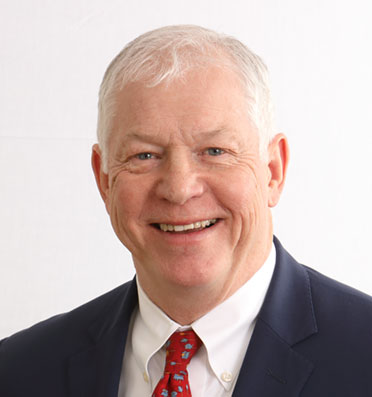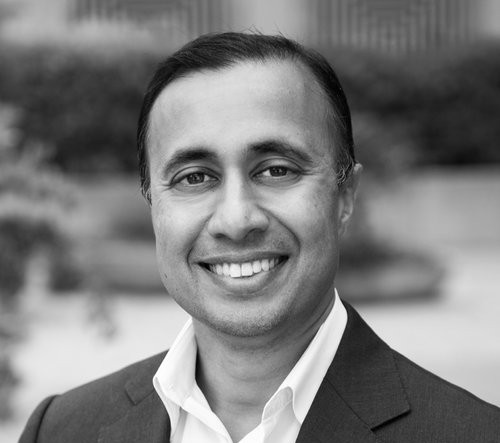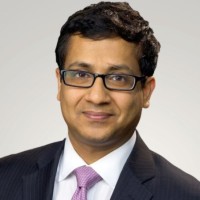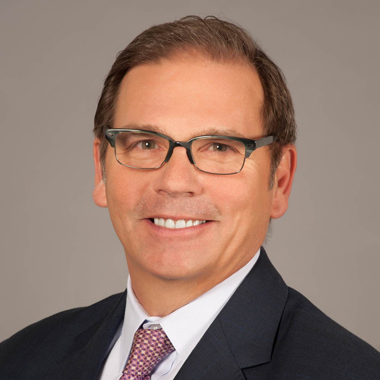June 20, 2025
Friends,
I am excited to share this interview with David Orr, General Partner of Militia Capital and the Militia Long/Short ETF (Nasdaq: ORR).
A former professional poker player, David has generated incredible returns for his investment partnership and recently launched an ETF. He is also a prominent poster on Twitter: @orrdavid.
After following David on Twitter for some time, we met in person in 2024 and have since communicated on numerous occasions. I find him to be one of the more out-of-the-box, thoughtful and sharp young investment managers that I know, and I have learned a lot by following him. He has also had incredible success while also actively managing a diverse short book. Recently, I purchased shares of ORR for my family trust.
I think you will enjoy this interview with David, which includes background on his hedge fund; why he started the Militia ETF; why he’s short numerous Business Development Corps; thoughts on Trump and energy geopolitics; and information on his favorite AI research tools.
I am also excited to announce Raging Capital Ventures’ 4th annual Ideas & Networking Conference on October 9, 2025 at the Standard Hotel – High Line in New York City. We have confirmed four outstanding speakers, including:
- Robert Robotti, a legendary and well-known value investor who runs Robotti & Co.
- Sumit Agarwal, co-founder of Shape Security (acquired by F5 Networks) and founder of Ario, his current AI start-up.
- Alok Agrawal, previously ran Bloom Tree Partners, a long/short hedge fund seeded by Tiger. Began his investment career at Bessemer Venture Partners.
- Phil Colicchio, an expert on the restaurant and hospitality industry who has represented over 60 James Beard Award-winning chefs.
The event will start with lunch at 12:30 PM and conclude with cocktails on the High Line River Terrace starting at 3:30 PM. See below for more information on the Speakers and Agenda and click here to register. Space is limited — I hope you can attend!
I hope you find value in this interview. Enjoy the summer.
Best Regards,
William C. Martin
Topics in this Issue of An Entrepreneur’s Perspective:
- Interview with David Orr, GP of Militia Capital: A Fresh Perspective on Long/Short Investing
- Save the Date: Ideas & Networking Conference, Thursday October 9, 2025
- Favorite Podcasts & Media
- Recent Tweets from @RagingVentures
**
Interview with David Orr, Militia Capital: A Fresh Perspective on Long/Short Investing

When did you start becoming interested in equity markets? Are you a self-taught investor?
College taught me that having an edge over low-cost index funds is impossible so I always just owned an S&P 500 ETF.
In 2017 I recalled another academic idea: that people could generate a higher return by taking on more risk. I set out to do this with my own money. But early on I stumbled upon the paper Betting Against Beta which showed that this academic idea is wrong. In fact, assets with more risk had a lower risk adjusted return. This was true across countries, timeframes and asset classes. This is the most thorough and convincing paper I’ve ever read.
I kept researching markets and I kept finding more anomalies. I began doubting what college taught me.
Then a catalyst hit. I saw what happened when the XIV short volatility fund blew up in February 2018. In the after hours I could sell my shares for $14 even though the clearly stated value of the fund was just $7/share. At first I thought this must be a glitch on their website. But then a good friend put me in contact with Rob, who would become my mentor for years. Rob confirmed that the website was accurate. He advised me to sell my shares and told me he was trying to short every share that he could possibly find across all of his brokers. This blew my mind.
At that point I questioned everything that I had learned in college. For the first time, I began looking through stocks one by one. Within a few months I’d looked at every stock in the Russell 3000 and it was screaming obvious that stocks are not priced efficiently.
When did you start your formal fund and tell us a little bit about its development? Congrats on your amazing success!
I generated 75% annualized alpha in 2019-2020 in my personal account over hundreds of bets. Due to this strong performance, strangers on the internet began reaching out to invest with me. In February 2021 the fund launched with $3 million. Since launching, the fund has generated 46% annualized alpha with a 3.25 Sortino and no market correlation.
In 2024 I started backing uncorrelated portfolio managers, guys I found on the internet. I had two goals:
1. Increase the firm level Sortino ratio.
2. Delay scale problems in my own partition.
This model has worked beautifully so far.
If anyone reading this has generated 25%+ annualized alpha (or 15%+ unlevered) over 200+ bets and a couple of years, please reach out to me if you’re looking for backing on generous terms. My hedge fund runs on a partnership model, long term paying out 90% of the performance fee to early PMs. PMs have more autonomy than most firms. I am especially looking for long/short biotech and long/short credit PMs but I am open minded to more strategies.
Your hedge fund today has $130 million of assets and you’ve mentioned on Twitter that you often have around 300 positions. How do you construct your portfolio and how has that evolved over time? How do you find time to manage so many positions?
My own partition has 300 positions and the firm level portfolio has 700 positions.
I look for low IQ ideas that seem obvious, long and short. I make bets within a couple of hours of finding an idea, if it takes any longer that means it’s too hard. I don’t overthink investments. When the facts change, or when the market says I’m wrong, I can easily quit bets since I have no emotional attachment. I am constantly finding new and better ideas.
The main thing I’ve changed over the years is avoiding all crowded shorts except a few that have a hard catalyst.
Crowded shorts have a bad risk profile. When too many people are short the same basket of stocks, all of the individual stocks in that basket become correlated when short sellers broadly are forced to cut leverage. These are called “degrossing” days. Crowded shorts become a single big bet in these moments and what might have seemed like a diversified portfolio of shorts, in reality, was not. These short sellers are essentially betting way too big. This is a catastrophic mistake because risk management is everything in short selling. And no matter how many times I tell this to short sellers, they do not listen.
Last year, you formed the Militia Long/Short Equity ETF (NASDAQ: ORR). Tell us about your premise behind creating your own ETF and how is the ETF’s strategy similar or different from your core fund?
Other hedge fund managers raise capital up to the equilibrium point of their fund not having an edge anymore after their enormous fee. This happens because large scale degrades an investor’s edge a lot and after the enormous fee there’s nothing leftover for the LPs. You see this over and over again in this industry. I find it extremely distasteful.
The ORR ETF has a much lower edge than my hedge fund so its 1.3% management fee is a fraction of what I charge in the hedge fund to match. This works out to .65%/year for every 100% gross exposure managed. The fee should match the edge and be low enough to provide true value. The ETF vehicle lets me sell the larger scale, lower edge portion of what I do for a low price. Note that the headline 18% expense ratio of the ETF doesn’t reflect the economic reality. The number is only so high because of quirks in how the regulators force the expense ratio to be reported – mostly from short dividend expenses, but also because the cash generated from short rebates does not offset margin interest.
ORR’s strategy is similar to my hedge fund. Both vehicles are long/short and the long positions mostly overlap. However, ORR has these key differences:
- Runs closer to 200% gross leverage while my hedge fund runs over 300%.
- Cannot short the same stocks as the hedge fund. They are too volatile, illiquid and I do not want them to get crowded.
- Has positive beta versus zero in the hedge fund.
- Doesn’t include positions from other PMs in my hedge fund.
Because of these large differences, the results of the ORR ETF will be uncorrelated to the results of my hedge fund.
You are short numerous BDCs such as Runway Growth Finance (NASDAQ: RWAY), Eagle Point Credit (NASDAQ: ECC), and Oxford Lane Capital (NASDAQ: OXLC), as well as various “synthetic” ETFs, such as the Russell 2000 Covered Call ETF (NASDAQ: RYLD), YieldMax Option Income ETF (NASDAQ: YMAX), and and the Global X SuperDividend ETF (NASDAQ: SDIV). Is there a common thread in these shorts? Is there a structural flaw in some of the synthetic ETFs?
The appeal of these products is that they have less upside volatility. I short these in the hedge fund to protect against market melt ups. However, in the ETF they’re much larger positions because I cannot make short term trades in the ETF vehicle like I can in the hedge fund. I want to avoid tough spots with a margin of safety. Lower upside volatility thus has more value in the ETF vehicle.
Short term trading isn’t suitable in ETFs because you have to coordinate with the market makers daily. They need to know what’s actually in ORR so that they can quote accurate prices. If I constantly moved the goal post midday they would stop market making for ORR.
SDIV is different from the rest of those. SDIV is appealing because it hedges international value oriented longs, which I have many of today. We still have a factor mismatch but this ETF helps a lot.
I’m curious to get your take on the policies of the Trump administration has been pursuing around tariffs and trade. What are your thoughts?
I wrote on X.com in March that:
- Trump watches his approval rating closely and he’d interpret his high approval as the American public supporting an aggressive trade policy. Thus, he would surprise to the upside with tariffs.
- The correct game theory approach was telling the world that any retaliation would be met with an immediate counter retaliation.
That ended up happening.
On April 7th, Trump proposed that the EU should buy $350 billion of US energy. When you do the math, this number is absurd and more energy than the EU could possibly need. Ignore the surface level number, which simply leaves room for the EU to save face. The real goal, I think, was to force the EU to start buying mostly US energy long term – particularly gas. I realized within 5 minutes of hearing that proposal that the crisis was over, that the EU would almost definitely agree behind closed doors. This is because the larger, quiet variable was the ongoing Ukraine war. Trump could have said, “Not only will we keep the tariffs, but also we’re pulling support from Ukraine if you don’t accept. And we might start talking seriously about leaving NATO.” What other choice would the EU have in that case? I think this max pressure approach worked – two days later the 90 day tariff pause was announced.
Extreme profits from natural gas are what empowered Russia to do so well in Ukraine. And Europe’s energy blunder cost the USA $100+ billion in aid. Trump forcing an end to this long term status quo was excellent policy. A minority of people are claiming that the EU wasn’t going to buy Russian energy again, anyway. To those people I say: go talk to way more Europeans if you think that, that was just not the case at all.
The new energy deal with the EU is incredibly bullish for US natural gas pipelines.
The beauty of this thesis: Even if I’m completely wrong here and nothing happens, I still have a likely good investment. And since nobody is talking about this energy deal, nothing will even happen if no deal is ever announced. That is, I won’t get punished for being wrong because people aren’t positioned for this to happen.
Besides that narrow energy policy goal, another big goal of the trade war might have been to alienate China. People talk like Trump capitulated on China, but I’m reading it a lot differently. If you were a manufacturer in China, or if you were buying your products from China, your business plan is far different today than it was in March. This damage seems permanent. Meanwhile, China never really got to do anything in response, there’s no long term damage on the US side.
What are your favorite AI tools for investing research? How important have these become for your workflow?
ChatGPT pro with deep research is amazing.
There’s usually a single variable that drives a company’s earnings over the next 3-5 years. I used to spend half of my time thinking through and ultimately guessing what that key variable is, and the other half went into answering it. Now with AI I can simply ask those questions and get fantastic answers automatically, saving half my time. And I believe that AI is already more accurate, has a larger breadth of knowledge and is more impartial than a human analyst could possibly be.
One of my hedge fund’s PMs set me up with an automated system for Japanese company filings using Gemini. Now I get emails daily with a bullet point summary of every filing of every Japanese company in my portfolio, automatically translated to English. This is an incredible time saver.
Thank you and good luck!
**
Ideas & Networking Conference – Speakers & Agenda

EVENT DETAILS
THURSDAY, OCTOBER 9th, 2025 – 12:30 PM
THE STANDARD HOTEL – HIGH LINE, NEW YORK CITY
THE HIGH LINE ROOM – 3RD FLOOR
LUNCH, SPEAKERS, & COCKTAILS ON THE RIVER TERRACE
HOST

William C. Martin, Raging Capital Ventures
Bill will lead a series of Fireside Chats with our featured speakers, including legendary value investor Robert Robotti, former hedge fund manager Alok Agrawal, successful entrepreneur Sumit Agarwal, and renowned restaurant industry consultant Phil Colicchio. Together, we’ll explore the latest developments in AI and technology, analyze the current market landscape, examine trends in the commodity and energy sectors, and identify actionable investment opportunities — plus much more. You can view Bill’s bio here.
AGENDA
12:30 PM // Meet and Greet
1:00 PM // Welcome
1:30 PM // Guest Speakers
3:30 PM // Cocktails on the River Terrace
GUEST SPEAKERS

Robert Robotti, President & CIO, Robotti & Company
Robert Robotti is a legendary and well-known value investor. He is the President and Chief Investment Officer of Robotti & Company, an investment firm he founded in 1983 after being introduced to investing while auditing Tweedy, Browne and then working at Gabelli & Company. Bob currently serves on the boards of Tidewater (TDW) and is the Chairman of Pulse Seismic (PSD.TO); among others, he was previously on the boards of BMC Building Materials (which is now part of Builders FirstSource (BLDR)) and PrairieSky Royalty Trust (PSK.TO). He holds a BS from Bucknell University and an MBA in Accounting from Pace University.
Bob will discuss the investment landscape, delve into the commodity and energy sectors, share some of his current investment ideas, and offer insights from his distinguished career.

Sumit Agarwal, CEO & Co-Founder, Ario
Sumit Agarwal is a successful serial entrepreneur and former public servant. His current startup is Ario, which is building the data enablement layer for consumer AI. Sumit previously co-founded Shape Security, a cybersecurity company acquired by F5 Networks (FFIV) for $1 billion, and Quova, a geo-location startup acquired by Neustar. He was also an early employee at Google (GOOG), where he led mobile and advertising product teams. Sumit was also a Major in the U.S. Air Force and served as a Deputy Assistant Secretary of Defense, where he focused on cybersecurity. He is a graduate of MIT.
Sumit will give us an update on the current AI landscape and how he sees AI technology evolving in the future, among other discussion items.

Alok Agrawal, Founder & Managing Director, Bloom Tree Partners
Alok Agrawal is a successful hedge fund and venture investor. He managed Bloom Tree Partners, a global equity long/short fund with a broad sector focus, for over 15 years, reaching peak assets of $2 billion. Bloom Tree was seeded by Tiger Management, where Alok previously worked as both an analyst and co-portfolio manager. He began his investment career at Bessemer Venture Partners, where he led investments into companies such as Skype. Alok is a graduate of Harvard Business School, where he was both a Siebel Scholar and Baker Scholar. He holds an M.S. in Computer Science from UC Berkeley and a Bachelor of Technology from the Indian Institute of Technology, Kanpur.
Alok will share his views on the latest trends in technology and artificial intelligence, discuss markets and politics, and share details on a current project he is working on.

Phil Colicchio, Founder & CEO, Colicchio Consulting
Phil Colicchio is an expert on the restaurant and hospitality industry. His firm, Colicchio Consulting, advises hotel and real estate developers, as well as universities, professional sports, mega yacht, and music festival industries, on high-profile, culturally relevant food and beverage partnerships. Phil, who is also an attorney, has represented over 60 James Beard Award-winning chefs, restaurateurs, and industry professionals. He played a key role in the Las Vegas restaurant boom, brokering major management and licensing deals between chefs and hotel-casinos. A graduate of Seton Hall University and Villanova Law School, he is also a founding member of CenPer Holdings, LLC, which has partnered with Warner Bros./Discovery to launch the “Central Perk Coffee Co.” brand of café’s and coffee products worldwide. Employing his experience and expertise for the benefit of the next generation of hospitality leaders, Phil collaborated with Culinary Institute of America to design and launch its Masters’ in Professional Studies program, where he continues to teach graduate courses on Real Estate and Capitalization Strategies for Restaurateurs.
Phil will give us some insights into the current business models found within the restaurant industry, discuss the growing national importance of food halls, and fill us in on the latest moves by hot chefs and restaurants.
**
Favorite Books & Media
Conversations with Tyler: John Arnold on Trading, Energy, and Evidence-Based Philanthropy
A fantastic interview with famous energy trader, John Arnold. The interview digs into Arnold’s career and trading approach; the unique attributes associated with the North American natural gas and power markets; current thoughts on global energy, geopolitics, nuclear and data center energy demand; why he retired and is now focused on philanthropy; his approach to philanthropy; and some thoughts on the art markets.
https://podcasts.apple.com/us/podcast/conversations-with-tyler/id983795625?i=1000711152093
Grant’s Current Yield: Nothing New Under the Sun
A thoughtful interview which digs into the world of distressed debt investing and litigation, including the current state of the high yield and private credit markets and the challenges facing private equity. The interview also digs into the prospects for the United States to “restructure” its sovereign debt as well as provides some interesting color on what the interviewee learned by being across the table from Donald Trump in bankruptcy and other litigation in the 1980s/1990s.
https://podcasts.apple.com/us/podcast/nothing-new-under-the-sun/id1207583745?i=1000711194839
Sir Chris Hohn: Strategic Investing, Long Term Value and Purposeful Philanthropy
A rare interview with Sir Chris Hohn, founder of The Children’s Investment Fund (which gives $500 mm a year to child health and climate causes), one of Europe’s most successful investors. In my mind, Hohn is one of the best disciples of Buffett, with a long term and patient approach. He also has an incredible investment track record. In the interview, Hohn outlines the characteristics of good and bad businesses, discusses how he hires talent, walks through the importance of intuition, and highlights his approach to service and philanthropy.
The Art of Simple Food: Notes, Lessons, and Recipes from a Delicious Revolution: A Cookbook

As an amateur chef, I’ve read a lot of cookbooks over the years. This is one of my favorites to dates and personifies my approach to cooking – seasonal and simple, with straightforward recipes and tips. The book provides great insights on how to procure and cook a range of seasonal produce, meats, pasta and more.
https://www.amazon.com/Art-Simple-Food-Delicious-Revolution/dp/0307336794
**
A Selection of Recent Tweets from @RagingVentures:
**
$AWE.L / $AWEVF being acquired by $QCOM in a $2.4 b deal, enhancing Qualcomm’s data center efforts. I’ve owned Alphawave since Feb 2023, and it has been my biggest position since it sold off at the end of 2024. $QCOM will pay either 183 pence (roughly $2.48 USD at current GBP… https://t.co/oYDb2yNzFZ
— Raging Capital Ventures (@RagingVentures) June 9, 2025
Finally had a chance to dig into the $RKT / $COOP combo. In short, I’m skeptical.$RKT is paying almost 2x book for a mortgage servicer that originates the bulk of its volumes through correspondent relationships. This a premium multiple for vanilla servicing rights. Further,…
— Raging Capital Ventures (@RagingVentures) June 10, 2025
Shorted $KNSL today. Stock has been inching higher after its dismal Q1. Competition has really accelerated in its core commercial property biz, while the broader Excess & Surplus category seems to be showing signs of finally normalizing after COVID. Trades at nearly 8x book.
— Raging Capital Ventures (@RagingVentures) June 12, 2025
$WBD is moving forward with the break-up of its linear “Global Networks” and “Studio & Streaming” businesses, with a mid-2026 targeted completion date. I still think the Studio & Streaming unit is worth more than the current EV of the entire biz today.
Also, Barry Diller is… https://t.co/wjSrtGeBSp
— Raging Capital Ventures (@RagingVentures) June 9, 2025
I was always very tax conscious as a fund manager.
However, managing your own money allows for *so much more* granular tax efficiency at the individual position level — allowing you to take advantage of the following: boxing/unboxing certain holdings to reduce risk while… https://t.co/rKbnKdYkYT
— Raging Capital Ventures (@RagingVentures) June 2, 2025
Bought a bunch of $CLF the past few days; hoping this level of support holds. Seems like the uber Trump stock — benefits from steel tariffs, efforts to drive domestic auto production (via tariffs and new tax deductions), and a unique vertically integrated asset base. Balance… https://t.co/a4jPx4pBmc
— Raging Capital Ventures (@RagingVentures) May 23, 2025
Bought ITM $EFXT calls with the stock at $6.75. Energy sector is out of favor, but the company is too cheap and the balance sheet is in a much better place. If cyclical worries abate at all, stock could move sharply higher.
— Raging Capital Ventures (@RagingVentures) May 8, 2025
Have not been sleeping well on this datapoint from $MCD last week…$MCD saw roughly double digit yoy declines in traffic from low and middle income consumers in Q1. This is pre-Liberation Day and before student loan collections restarted. pic.twitter.com/edb5bIIP8y
— Raging Capital Ventures (@RagingVentures) May 7, 2025
Bill Clinton used to say (in essence), ‘If you wait long enough, the news cycle will change.’
Trump has one-upped that approach — he doesn’t wait for the news cycle to shift; he creates a new one every single day!
— Raging Capital Ventures (@RagingVentures) May 7, 2025
Shorted $MO. Cig vols are declining -8% to -10% per year, which mgmt has offset with price hikes. But Marlboro price premium vs. discount cigs is at high levels (close to 50%) while consumer teeters. $MO also underweight smokeless & e-cigs. Seems like a local TV broadcaster.
— Raging Capital Ventures (@RagingVentures) April 25, 2025
$FPH printed a super strong Q1, again powered by Great Park land sales (at over $11 mm per acre). They have line of sight to additional material land sales at Great Park in ‘25 and ‘26; 8,000+ pending lot approvals at Valencia in Los Angeles County; and they plan to break ground… https://t.co/hY9TrSaMDB
— Raging Capital Ventures (@RagingVentures) April 29, 2025
Bought $LBTYA today. Haven’t been involved for a while, but the weak USD is very bullish for them and they continue to buyback large amounts of stock.
— Raging Capital Ventures (@RagingVentures) April 15, 2025
$FCX is a large integrated producer of copper inside the USA, so tariffs benefit them. However, a global slowdown which hurts copper prices would be a negative offset. I’m now long $FCX via ITM calls. pic.twitter.com/BFsAs4MzbD
— Raging Capital Ventures (@RagingVentures) April 8, 2025
“This is not the end; it is not even the beginning of the end. But it is, perhaps, the end of the beginning.” – Winston Churchill
